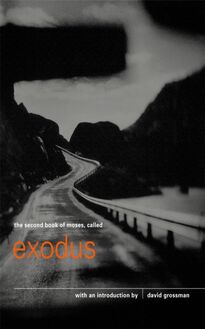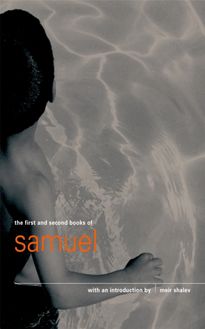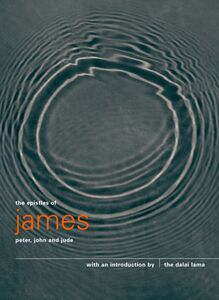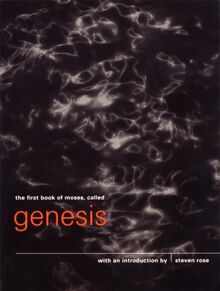-
 Univers
Univers
-
 Ebooks
Ebooks
-
 Livres audio
Livres audio
-
 Presse
Presse
-
 Podcasts
Podcasts
-
 BD
BD
-
 Documents
Documents
-
- Cours
- Révisions
- Ressources pédagogiques
- Sciences de l’éducation
- Manuels scolaires
- Langues
- Travaux de classe
- Annales de BEP
- Etudes supérieures
- Maternelle et primaire
- Fiches de lecture
- Orientation scolaire
- Méthodologie
- Corrigés de devoir
- Annales d’examens et concours
- Annales du bac
- Annales du brevet
- Rapports de stage
La lecture à portée de main
Vous pourrez modifier la taille du texte de cet ouvrage
Découvre YouScribe en t'inscrivant gratuitement
Je m'inscrisDécouvre YouScribe en t'inscrivant gratuitement
Je m'inscrisEn savoir plus
Vous pourrez modifier la taille du texte de cet ouvrage
En savoir plus

Description
Sujets
Informations
| Publié par | Canongate Books |
| Date de parution | 01 janvier 1999 |
| Nombre de lectures | 0 |
| EAN13 | 9780857860934 |
| Langue | English |
Informations légales : prix de location à la page 0,0040€. Cette information est donnée uniquement à titre indicatif conformément à la législation en vigueur.
Extrait
Contents
Title Page a note about pocket canons introduction by charles johnson the proverbs 2 3 4 5 6 7 8 9 10 11 12 13 14 15 16 17 18 19 20 21 22 23 24 25 26 27 28 29 30 31 titles in the series About the Author Copyright
a note about pocket canons
The Authorised King James Version of the Bible, translated between 1603–11, coincided with an extraordinary flowering of English literature. This version, more than any other, and possibly more than any other work in history, has had an influence in shaping the language we speak and write today. Presenting individual books from the Bible as separate volumes, as they were originally conceived, encourages the reader to approach them as literary works in their own right.
The first twelve books in this series encompass categories as diverse as history, fiction, philosophy, love poetry and law. Each Pocket Canon also has its own introduction, specially commissioned from an impressive range of writers, which provides a personal interpretation of the text and explores its contemporary relevance.
introduction by charles johnson
Where there is no vision, the people perish.
Of all the practical observations in that most pragmatic of texts in the Old Testament, The Book of Proverbs, this one sentence linking vision and life comes singing off the page as the most profound. Meditate, please, on the possibility that in life there is a goal, an end that makes all our worldly efforts intelligible. Carefully think it through: without a vision, either personal or political, the individual (or society) is ‘like a city that is broken down, and without walls’. This is not simply a question for the schools, for without a comprehensive and capacious philosophy life fails. The unsentimental implication here – the basic, philosophical and secular premise – is that life can be a perilous journey. Perhaps a social minefield. (Just read today‘s newspaper if you need proof that the world is and has always been a dangerous place.) And any young person hesitantly starting out on this odyssey, now or in the days of King Solomon, soon discovers that his (or her) chances for survival, prosperity and happiness are enhanced a hundred-fold if – and only if – they have a good map.
Put simply, Proverbs is that richly detailed, many-splendored map. A timeless wake-up call. More importantly, along with its companion books, the poetic ‘wisdom’ literature of the Old Testament ( Job, Ecclesiastes, The Song of Solomon, and Psalms ), it is a two-millennium-old blue-print for the staggering challenge of living a truly civilized life. Culture, we realize after reading Proverbs, is an on-going project. We are not born with culture. Or wisdom. And both are but one generation deep. Achieving either is a daily task requiring as much work for the individual as an artist puts into a perfectly balanced painting, or a musician into a flawless performance. (Thus one wonders if the great bulk of human-kind can be truthfully called either cultured or civilized.) Here, in this repository of moral instruction, in its 31 chapters, 915 verses, approximately 900 proverbs, and 15,043 words, the journey that we call a life is presented as a canvas upon which the individual paints skillfully a civilized self-portrait – an offering – that will please himself and the Lord. In chapter 3, we are told, ‘Happy is the man that findeth wisdom.’ The Hebrew word for ‘wisdom’ is chokmah. It occurs no less than thirty-seven times in Proverbs. Chokmah also means skillfulness in dealing with the job that is before us – life itself – and I believe it is comparable to the Greek word techne, the rational application of principles aimed at making or doing something well. The reader who takes Proverbs to heart, who believes like the Greeks that ‘the unexamined life is not worth living’, is by nature a lover of wisdom: a philosopher. For that is precisely what the word ‘philosophy’ means ( philein, to love – sophia, wisdom).
I’m aware those words – ‘wisdom’, ‘civilized’ and ‘philosophy’ – may sound musty and antique to modern (or post-modern) ears. As so many have said, ours is an Era of Relativism, or situational ethics, perhaps even of nihilism, an historical period in which Proverbs will for some readers seem right-wing and patriarchal, oppressive and harsh, dogmatic and illiberal. Many will regard its contents as obsolete for the conditions we face at the eleventh hour of the twentieth century because, above all else, we moderns value individual freedom. Unfortunately, our passion for liberty is often misunderstood as license or, more accurately, as licentiousness. Personally, as a Buddhist, I was at first wary of writing about this book, though I was raised on its vision in a midwestern, African Methodist Episcopal church. But after going over Proverbs a half dozen times, after opening myself to its spiritual core, which complements nicely the world’s other great religious traditions, I re-discovered the gems it has offered western humanity for centuries. I saw in its gnostic truths the reason why Professor C E M Joad once defined decadence as ‘the loss of an object in life’. In fact, I realized that Proverbs not only speaks powerfully to our morally adrift era, but describes rather well my own often benighted, rebellious-on-principle generation (the Baby Boomers) when it says, ‘There is a generation that curseth their father, and doth not bless their mother. There is a generation that are pure in their own eyes, and yet is not washed from their filthiness’ (30 :11-12).
Chilling.
Like all rich, multi-layered digests, Proverbs was not the work of a day. Nor is it the product of a single author, though King Solomon, that Ur-figure among ancient wise men, is credited with having contributed two of its oldest sections (1:1 and 1:10). Several centuries after the death of Israel’s king, the men of Hezekiah (700 BCE ) added chapters 25 through 29 from Solomonic material. In short, the book was built layer upon layer, one tissue at a time, borrowing its synthesized instructions from many ancient sources, and did not achieve its finished form until the fourth or fifth century BCE . It favors, one might say, an old, old coin that has traversed continents, picking up something from each one as it was passed down through centuries – advice on social etiquette, philanthropy, how to choose a wife, and why children may need an occasional dose of Dr Spanker’s tonic (the ‘rod’) – and bears the sweat and palm-oil of millions who have handled it. Bible scholar Kenneth T Aitken persuasively argues in his commentary Proverbs that the third section of the text (chapter 22) takes a few pages from the Instructions of Amenemopet. * That work, dating back to between 1000 and 600 BCE , was strictly a manual of professional training aimed at helping Egyptian civil servants achieve successful careers as they served the state. The sages of Israel, says Aitken, reworked some of the precepts from Instructions and at the same time re-contextualized them in a book far broader in its teachings for a triumphant life.
And these were, of course, originally oral teachings. They were delivered by a sage to pupils he addressed as a father would his children. His young charges were expected to memorize the proverbs until they were hard-wired into their hearts. Thus, this book was written for the ear. It relies heavily on repetition, a mnemonic device (which might weary modern eyes), and in its compositional strategies employs couplets linked by parallelisms. In his exegesis of Proverbs , J Vernon McGee identifies three forms of parallelisms that occur in the text: (1) Synonymous Parallelism, where the second clause restates the content of the first (‘Judgments are prepared for scorners, and stripes for the back of the fool’, 19 : 29). (2) Antithetic (Contrast) Parallelism that states a truth in the first clause, then contrasts it with an opposite truth in the second (’The light of the righteous rejoiceth, but the lamp of the wicked shall be put out’, 13 : 9). And (3) Synthetic Parallelism in which the second clause develops the truth of the first (’The terror of a king is as the roaring of a lion; whoso provoketh him to anger sinneth against his own life’, 20 : 2). *
Yet, for all the sophisticated architectonics in Proverbs , and for all the complexity of its literary pedigree, this is a book that sketches out a compelling, classic story: a pilgrim’s progress. Imagine a young man (or woman) about to embark on life’s journey. Call him – well, Pilgrim. Then, as now, the world teemed with a kaleidoscope of temptations, stramash and confusion. In the bustling cities where colorful bazaars, beggers, thieves, perfumed harlots, con-men, murderers, insouciant idlers and false teachers eager to entice a young person toward wrong-doing and sin (one hoary meaning of which is ‘to miss the mark’), all can be found in great abundance. Indeed, these players, some as beautiful as Satan and who say, ‘Let us lay wait for blood, let us lurk privily for the innocent’, have from time immemorial taken advantage of callow youths (as well as given writers as diverse as Voltaire, De Sade, Dickens, Fielding and Maugham inexhaustible material for the Bildungsroman ). Given a strictly materialistic viewpoint, it follows that the world of matter, mere stuff , will be dominated everywhere and in any era by those who treat objects and others as things to be used for their own pleasure and profit, and view everything through the lens of their own limited consciousness. Surveying this social field, we can imagine the authors of Proverbs agreeing with Thomas à Kempis who, in The Imitation of Christ , wearily quotes the Stoic philosopher Seneca, ‘A wise man once said, “As often as I have been among men, I have returned home a lesser man”… No man can live in the public eye without risk to his soul …’
-
 Univers
Univers
-
 Ebooks
Ebooks
-
 Livres audio
Livres audio
-
 Presse
Presse
-
 Podcasts
Podcasts
-
 BD
BD
-
 Documents
Documents
-
Jeunesse
-
Littérature
-
Ressources professionnelles
-
Santé et bien-être
-
Savoirs
-
Education
-
Loisirs et hobbies
-
Art, musique et cinéma
-
Actualité et débat de société
-
Jeunesse
-
Littérature
-
Ressources professionnelles
-
Santé et bien-être
-
Savoirs
-
Education
-
Loisirs et hobbies
-
Art, musique et cinéma
-
Actualité et débat de société
-
Actualités
-
Lifestyle
-
Presse jeunesse
-
Presse professionnelle
-
Pratique
-
Presse sportive
-
Presse internationale
-
Culture & Médias
-
Action et Aventures
-
Science-fiction et Fantasy
-
Société
-
Jeunesse
-
Littérature
-
Ressources professionnelles
-
Santé et bien-être
-
Savoirs
-
Education
-
Loisirs et hobbies
-
Art, musique et cinéma
-
Actualité et débat de société
- Cours
- Révisions
- Ressources pédagogiques
- Sciences de l’éducation
- Manuels scolaires
- Langues
- Travaux de classe
- Annales de BEP
- Etudes supérieures
- Maternelle et primaire
- Fiches de lecture
- Orientation scolaire
- Méthodologie
- Corrigés de devoir
- Annales d’examens et concours
- Annales du bac
- Annales du brevet
- Rapports de stage




















